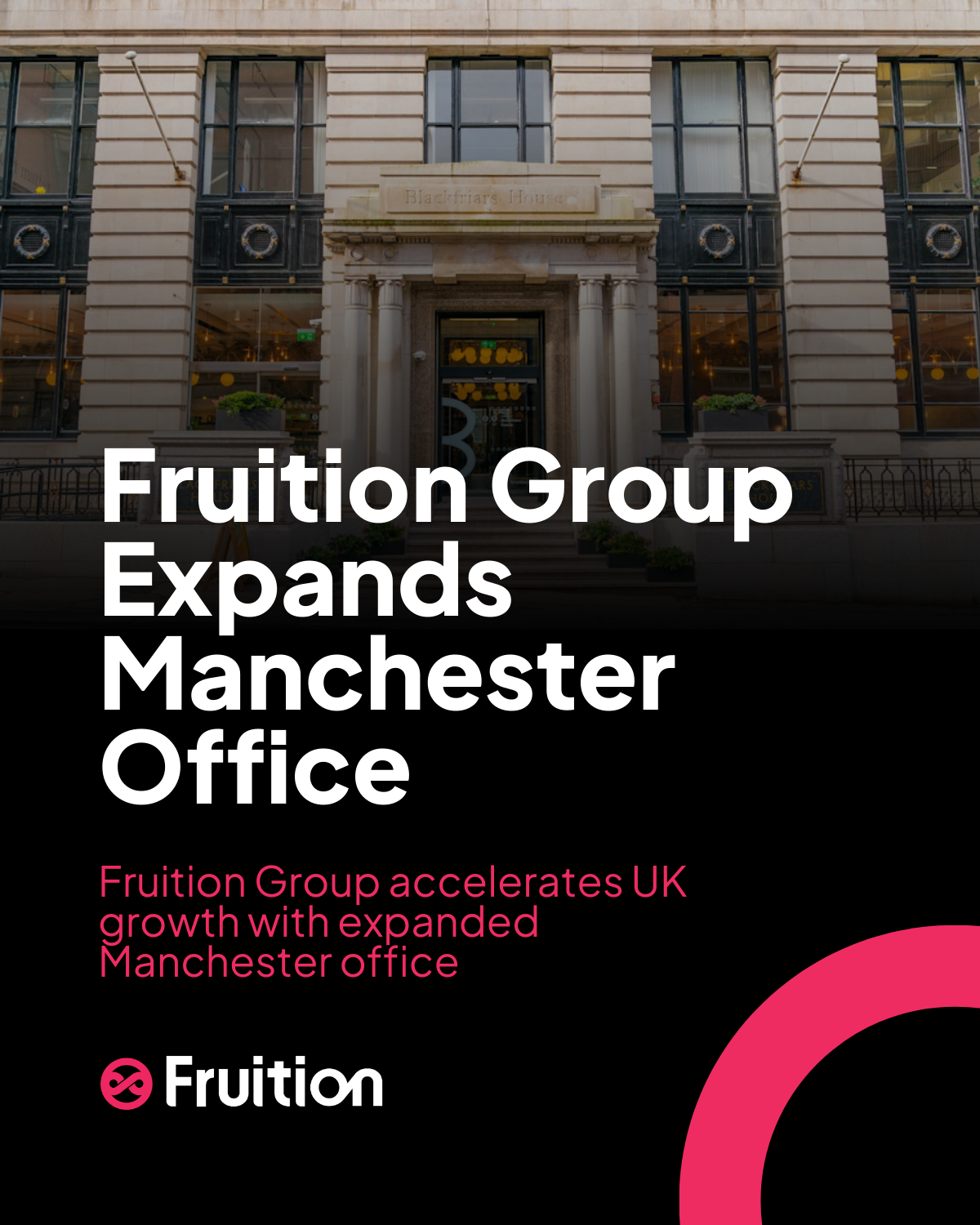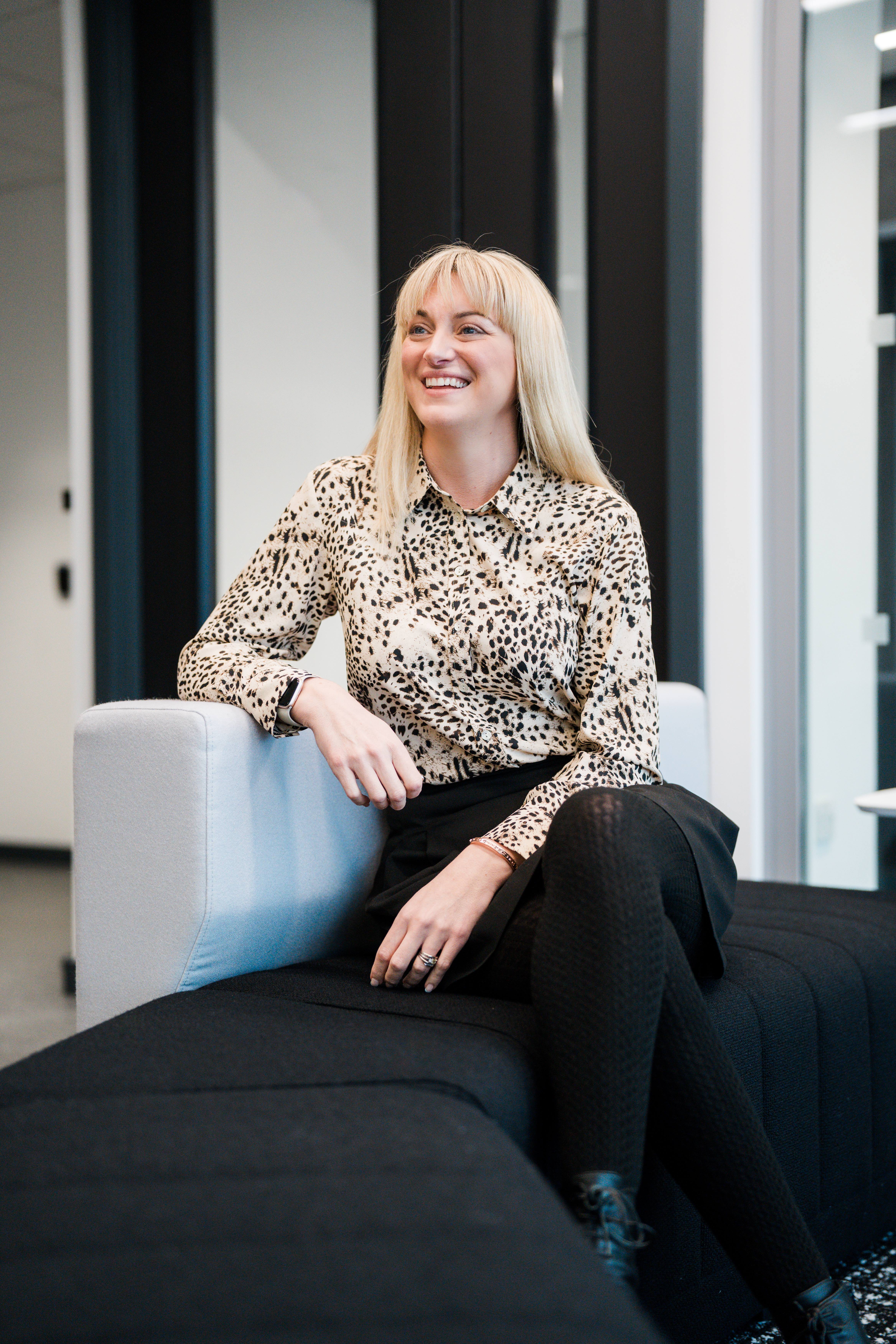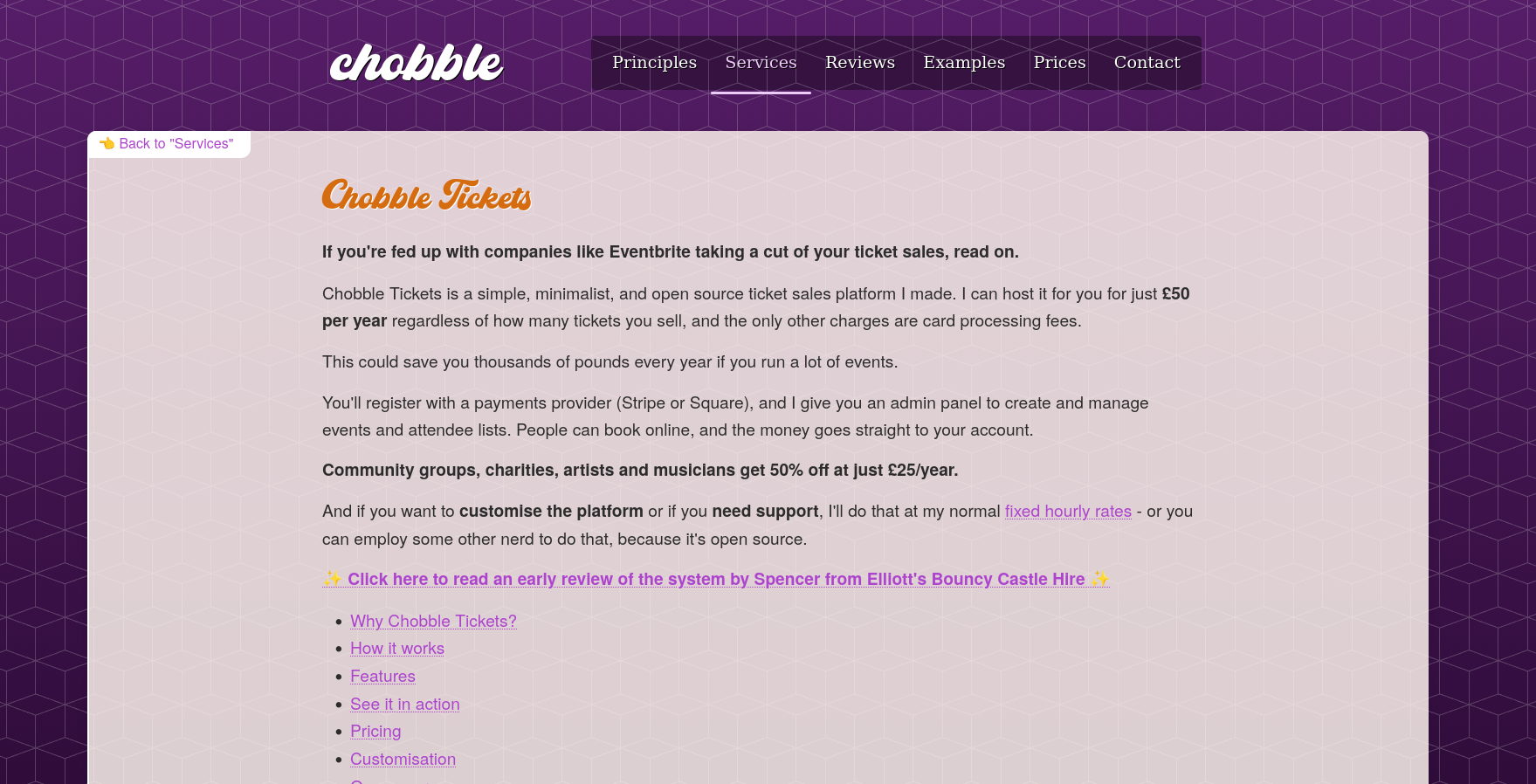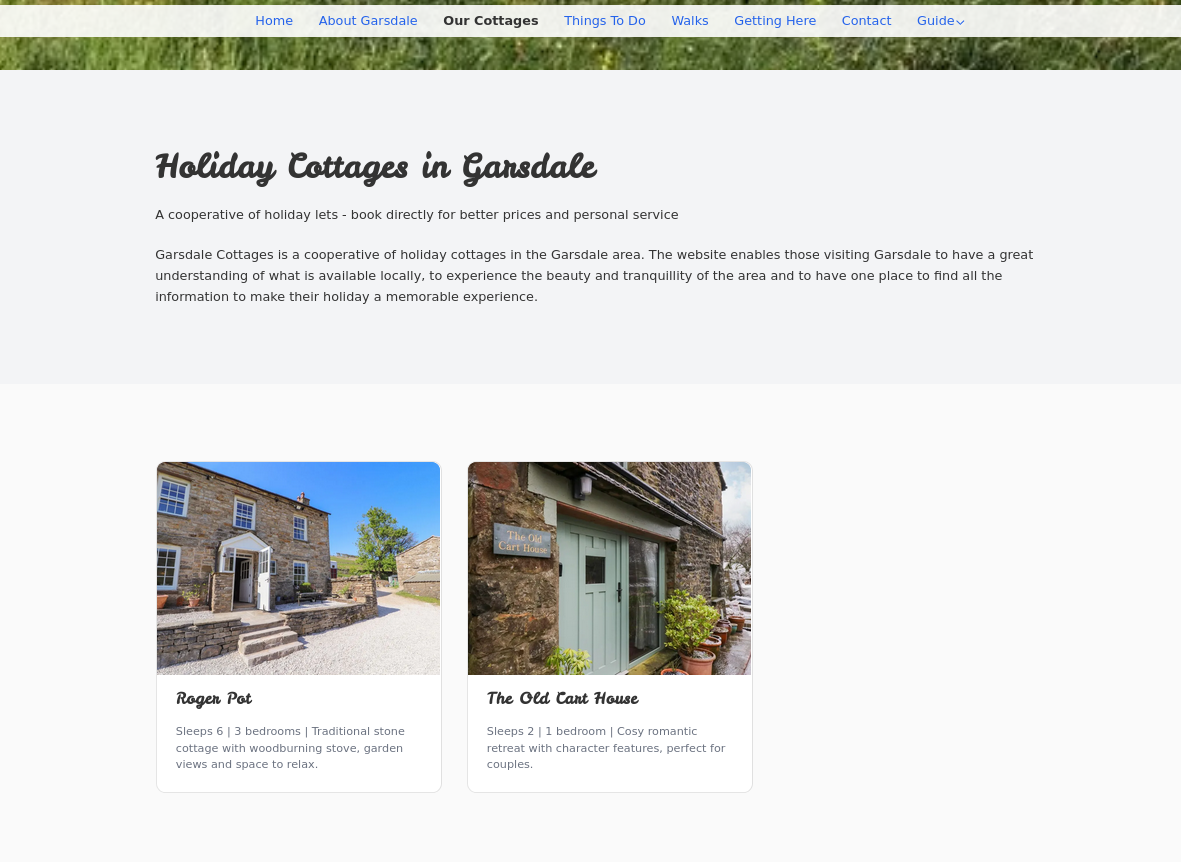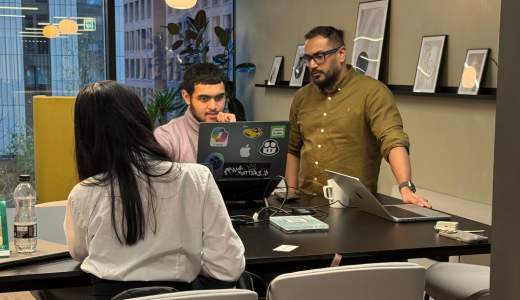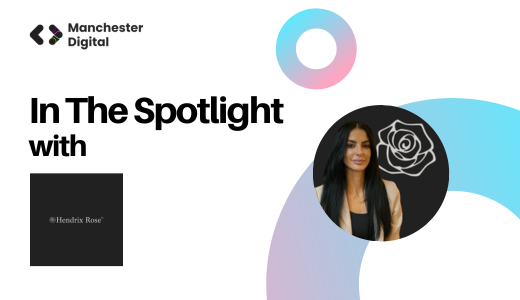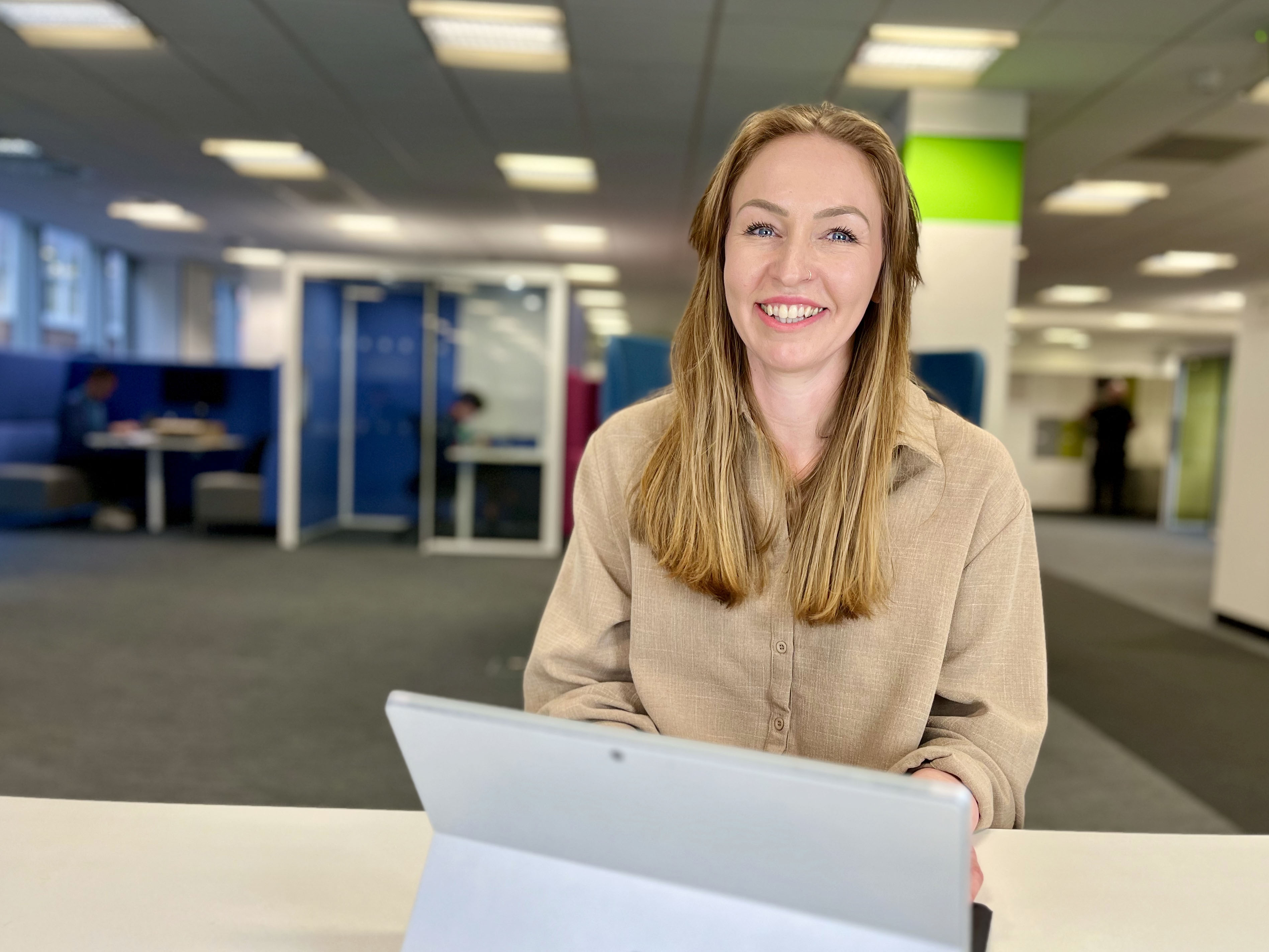
OpenMoney is looking to use technology to open up the world of finance to previously underserved sections of the market. The company has seen steady growth since its creation and now boasts a 70+ team.
We caught up with Founder, Anthony Morrow for our latest edition of Senior Tech Talk.
Could you please tell me a little bit more about OpenMoney as an organisation and your goals as a business?
OpenMoney is a business that we started working on in 2016 and launched towards the end of April 2017. Our aim is to help provide financial advice to those people who don't have a lot of money, don't have a lot of knowledge or experience, and who have been left behind by the traditional financial services industry. The traditional financial advisor now requires an ever increasing level of wealth and assets in order for them to justify taking on a new customer. The new solutions that are being created, like robo-advisers, are for people in that demographic but rely on that person making their own decisions and taking their own risks as to whether or not it's the right thing to do.
So, we saw the market as really being upside-down and that the people who really needed advice, who really can’t afford to make mistakes or wrong decisions with their money, are the people who are not being given the support that they need. Those people who have money and assets, and therefore by definition are more likely to have experience around what investing is and if they do make the wrong decision, then they've got wealth to fall back on, there are literally thousands of businesses who are willing to help them.
Duncan and I, we'd been friends for almost two decades and we'd spoken about this problem for a number of years. We were both doing different things at that point, but once it became clear that we could do this and we got past the fact that best friends shouldn't work together, then we decided, let's give it a go.
We’ve just celebrated our third birthday, which wasn't in the circumstances I would have hoped to, but by and large, it's been a pretty good first three years. Our customer numbers are good, we've really enjoyed a positive first half of 2020, despite everything with the virus and with lots of things planned for the future, we're in a pretty good space.
Would you be able to give a little bit more detail about the products and what they actually involve for customers?
Yeah, sure. Our long-term ambition is to be the one-stop shop for people’s finances. Whether that's from helping people with their debts, to get control of that income and expenditure, to building up savings in cash and rainy-day funds, to making long term investments through ISAs and pensions. We invest and manage money ourselves and then we use open banking technology to allow us to look at people's finances and make suggestions in terms of how they can improve their financial situation.
We make an initial recommendation to someone who'd come to us often thinking that they want to invest, maybe invest in an ISA or start making a long-term investment. But when we've asked a few questions, then actually we recommend that that's not right for them at the moment, and actually what they should be doing is getting the foundations in place to be able to do that from the right point of view. And that's often because they've got lots of unsecured debt or they've got no rainy-day fund. So those two are big red lines for us, that unless you can get your unsecured debts into a place where it's affordable and manageable, and you've got those cash rainy-day funds so that if an emergency happens, you've got some cash there to fall back on, then you shouldn't be making long-term investments.
One of the surprises that came out quite early was that about 80% of the people who come to us thinking about investing, we recommend don't invest at that point in time, which was interesting, but it's one of those things that actually, when you think about it, probably makes sense, because you hear about and you read many reports coming from charities showing how the level of unsecured debt on an individual level just increases. It's increasing every year, over and over and over, and there's new types of debt that you can get yourself into, and it's never really getting controlled.
It seems ridiculous that a single-digit percent has more than a thousand pounds in cash saved up. So when you look at those and they're two really fundamental issues, having uncontrolled debt and having no rainy-day emergency fund. It isn't only not great from a financial planning point of view, but introduces lots of other stuff, stress and worry and all of those things. So we think it's really important, before you start looking to invest in shares and whatnot, to get those basics in place.
Could you go into a little bit of detail about your role on a day-to-day basis within the business?
My day-to-day role is really just trying to promote the business, promote it and making sure that what we're doing is going in the right direction. We've got really capable people who deal with the development side, on the customer services side and the marketing side, and they can easily get on with their own without me harassing them.
I just spend my time making sure that we're saying the right things, we keep focused on why we're trying to do this, the direction we're trying to go, and that the products that we are creating and the services we're creating are the right ones for our customers.
What are the challenges that come with this role?
Well, I suppose the biggest challenge that I've probably faced over the last few years is balancing my expectations with the realities of development and technology. And I'll get there at some point, I think, but it has been a challenge.
I'm not really a technology person, but I must admit, sometimes I do think that timeframes are abstract in the world of development!
Because we're privately funded through Duncan and I, we've been quite fortunate in that we've been able to evolve quickly, especially around Open Banking which wasn’t even on the agenda for us in 2016, but there have been delays and things haven't necessarily turned out as planned, and it’s probably easier to face those without external investors banging on the table.
The open banking APIs aren't the greatest APIs in the world, and when you've got a proposition that relies on them quite extensively, then it can become really frustrating. Especially when you want something to work really great for your customers, and for lots of reasons, none of which deliberate, things don't necessarily work as well as you'd planned.
So it's trying to rationalise the expectation in your head with the reality of what iteration one, iteration two might look like.
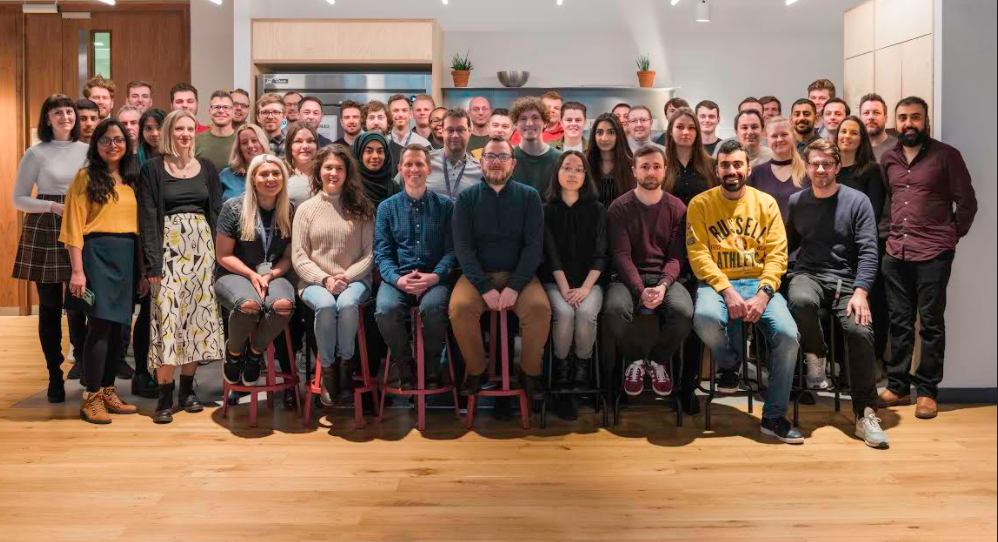
Also, we're now up to 70 people in the business now, and that brings with it additional responsibilities. When you start out on day one, you're there to improve the world for those people who really need to make the most out of their money and there's a real crusade-type feel to it. Fast-forward three years and obviously the passion and commitment is still there, but you now need to think about, well, actually you've got 70 livelihoods here so those “off-the-cuff” decisions you were making at the start have much bigger ramifications attaching to them. You've got these people and you need to keep their motivations high and also look after them, which has been especially important these last few months. These are the responsibilities that you hope you will get to when you start our but you're never quite prepared for it when it happens.
What innovation are you most looking forward to seeing within the FinTech sector?
That's a good one. I think the Open Finance Initiative will be really important when it finally starts to realise itself. I think there's a lot of talk around it at the moment. I think being able to give people easily single views of their financial life will absolutely help them make the right decisions, or make them more informed to make the most out of their money.
Right now, if you've lived for 20 years with a handful of jobs, then your financial situation could be all over the place. And it's not easy to get a single picture of that, and it's even harder to try and understand a lot of the jargon that's put around that.
So I think the Open Finance Initiative will go some way at that. I think we're a good number of years from that being a reality, just because of the scale of the ambition and as we're seeing with open banking, the ambition tends to be some way ahead of the actual reality of what the technology can actually produce. I also think there's a lot more that's coming our way in terms of machine learning and data science around that and how the automation of the decision engines can improve customers' outcomes as well.
How has the coronavirus affected your business and the sector in general, in your opinion?
Well, from our point of view, it hasn't impacted the business itself particularly hard. We've had a really good half year and we're at that point in our growth phase where every month's better than the last one. And that hasn't really been impacted in quarter two, or during the crisis, and I think that's probably because people have had more time on their hands to look at their finances and it's piqued their interest in terms of the uncertainty and what might still be the non-health implications of this virus and the impact that will have on the economy. It has got more people to look at those things and take an interest.
So, from a business point of view, touching wood, we've been quite fortunate.
We made the decision about ten days before the formal lockdown, that we would work from home and we would work from home for three months, regardless of what the government said. The reason for that was we were looking to try and introduce a level of certainty into people's days and lives in an environment where everything was up in the air and no one really knew what was going on. We thought, ‘right, there's a couple of things we can do to just really help our people.’
One was, we're going to work from home for three months. Let us know what you need to make that viable and whatever things you need to make your home workable. And we did that. People can get their head around the mental aspects of working from home for three months without having the continual disappointments of waiting, saying, "Oh, let see what the government says this week."
And then the second thing we did was we made a decision that we weren't going to furlough anyone or make anyone redundant, and that we would provide security around everyone's jobs. We have used the three months really to do things that have always appeared on the backlog, but never got done, because they're not perhaps as exciting as new features. Let's batten down the hatches, and get ourselves in a position where we are coming out of it stronger. We've still got the big looming question about what we do regarding our offices and how we get people back into there but we're doing that from a pretty pragmatic point of view.
You mentioned about the number of staff that you have, in terms of talent attraction, how have you found recruiting tech talent in Manchester?
Well, certainly since we started, it's fair to say that salary inflation in the tech sector has gone through the roof. Getting good quality people, which you need, has become a harder, more competitive job. In some ways, if I look at it from a totally unbiased point of view, I think that's really good, because it's a testament to the quality of firms that Manchester is attracting and the talent that the city is producing.
A large part of it is around the quality of the Universities.
So it’s difficult and it's competitive. We are never going to compete with a lot of the big tech firms on a pure financial basis but we offer people opportunities and the chance to get involved in stuff that they don't get involved in if they're part of a 500-man dev team, where they could just sit there taking instructions on what to do today.
We also offer share options for people in the business, so everyone who works for it owns a bit of the business. And we try and build in more broader opportunities for people that hopefully will make them choose us rather than someone else.
Is it important for OpenMoney to be a committed part of greater Manchester's tech community? And if so, why and what actions do you take?
Yeah, I think so. We're very keen on working with various initiatives, whether it's Manchester Digital to local charities. We're a big supporter of Wood Street Mission. We have an apprentice scheme that brings in people from local schools because it’s important that the rush to make Manchester a global, digital city doesn’t also mean that the serious issues are forgotten. It’s vital that the many opportunities that the City’s growth plans will provide are available to everyone and that we don’t see widening of the “already too wide for 2020” inclusivity gap.
We try to, where possible, to use marketing, media agencies who are locally based. So we're very committed to Manchester as a city, and I'd certainly think Manchester's got a lot to offer and a lot of benefits over and above our southern friends.
In terms of the tech sector, then I think there's still some work to get everyone as engaged as they might be in London. If you look at some of the London gangs like Innovate Finance and people like that, I think maybe just because of the sheer number of firms and businesses that are down there, they can have a half-empty session and it's still busy. And maybe we're just busier than they are down there so we don't have as much time as they do to turn up to these things. But I think there's definitely a lot that we can do to get everyone a bit more engaged. Because I think it will be good, and there's lots of stories for people to share, things not to do and things to do, and there's a lot of brilliance around as well. So who wouldn't want to get involved with that?
What do you think the FinTech sector in Manchester will look like in ten years' time? And what role will OpenMoney ideally be playing in the ecosystem?
Hopefully, someone else will be worrying about it then. I think FinTech now is becoming a historic word, because it's difficult now to see any business, not just a finance business, but any business in any sector that doesn't have a much larger dependence on technology than it did five years ago. And there's only one direction of travel now.
Technology is going to become a bigger and bigger part of any business's life. So technology, rather than it being, "Oh, I'm a technology company," it's just going to be, "I'm a company. What technology do you use or how do you use technology?"
I think Manchester will continue to grow at the pace it has in terms of the quality of the businesses that are in there. I think it helps with having the three great universities and the technology and computer science faculties that come out of there. That's clearly going to have a positive impact on the City. The big complex that's going on on Oxford Road with Bruntwood, Circle Square, I expect great things coming from there.
There's a lot of good stuff going around there, and obviously with OpenMoney's ambitions to be a one-stop shop for people's finances, then if we reach anywhere near that ambition, then we should be playing a pretty big role in Manchester's ecosystem and helping Manchester punch well above its weight as usual in the global tech community.
Want to raise your profile?
If you would like to see your business feature on our website, newsletter and social media, contact thom@manchesterdigital.com
